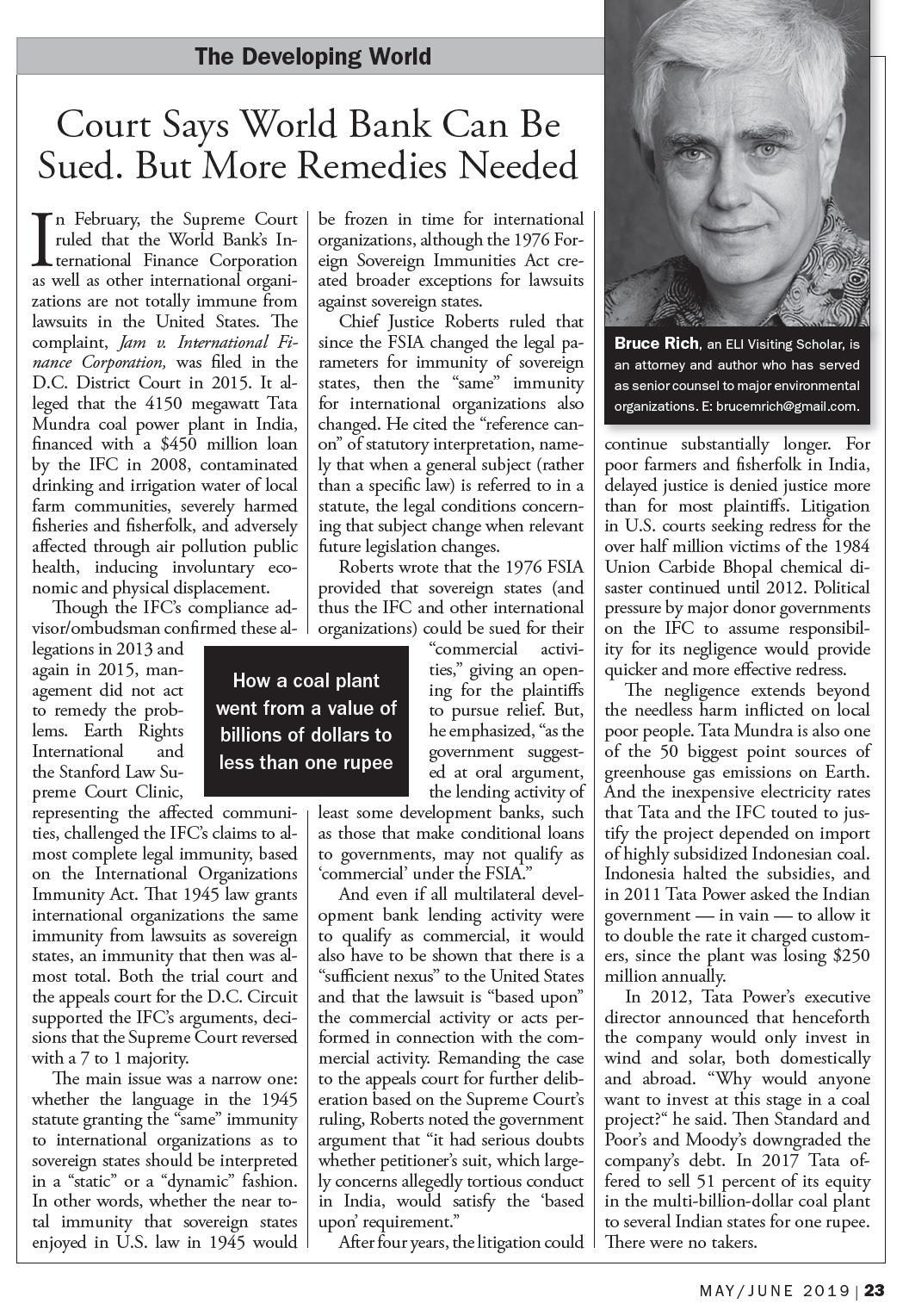- Bruce Rich
- Environmental Forum
- May-June 2019
- p. 23
In February the Supreme Court ruled that the World Bank’s International Finance Corporation as well as other international organizations are not totally immune from lawsuits in the US. The complaint Jam v. International Finance Corporation alleged that the 4150 megawatt Tata Mundra coal power plant in India, financed with a $450 million loan by the IFC in 2008, contaminated drinking and irrigation water of local farm communities, severely harmed fisheries and fisherfolk, and adversely affected through air pollution public health, inducing involuntary economic and physical displacement. After four years, the litigation could continue substantially longer. For poor farmers and fisherfolk in India, justice delayed is justice denied is more true than for most plaintiffs. Litigation in U.S. Courts seeking redress for the over half million victims of the 1984 Union Carbide Bhopal chemical disaster continued until 2012. The negligence extends beyond the needless harm inflicted on local poor people. Tata Mundra is also one of the 50 biggest point sources of Greenhouse Gas emissions on earth. The inexpensive electricity rates that Tata and the IFC touted to justify the project depended on import of Indonesian coal at highly subsidized rates. The Indonesian government halted the subsidies, and in 2011 Tata Power asked the Indian government—in vain-- to allow it to double the rate, since the plant was losing $250 million annually and in risk of becoming a non-performing asset.Political pressure by major donor governments on the IFC to assume responsibility for its negligence would provide quicker and more effective redress.



